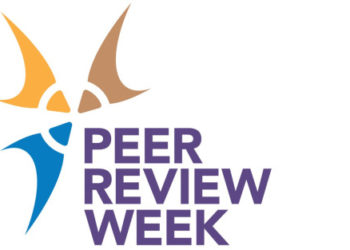 From ER&L to SSP and beyond, there is no shortage of conferences for scholarly communications professionals to attend. Many of us have at least one key meeting that we attend year after year – partly to learn and partly to network – which is often focused primarily on our own community (Charleston or one of the ALA meetings for librarians, ALPSP or PSP for publishers, and so on). With budgets under pressure, it can be hard to make the case for attending other conferences, especially those that are ‘outside’ your core community. However, in my experience, those are the very meetings where you learn the most, which is why I was excited to hear about Advancing Research Communication & Scholarship (ARCS), a new conference to be held in Philadelphia, PA on April 26-28. Two of the ARCS 2015 Board members, Robin Champieux, Scholarly Communication Librarian, Oregon Health & Science University and Jill Emery, Collection Development Librarian, Portland State University, kindly agreed to tell us how the meeting came about, what they hope to achieve, and more. (Full disclosure, the Scholarly Kitchen’s Jill O’Neill is also on the 2015 Board, and Charlie Rapple is leading one of the sessions.)
From ER&L to SSP and beyond, there is no shortage of conferences for scholarly communications professionals to attend. Many of us have at least one key meeting that we attend year after year – partly to learn and partly to network – which is often focused primarily on our own community (Charleston or one of the ALA meetings for librarians, ALPSP or PSP for publishers, and so on). With budgets under pressure, it can be hard to make the case for attending other conferences, especially those that are ‘outside’ your core community. However, in my experience, those are the very meetings where you learn the most, which is why I was excited to hear about Advancing Research Communication & Scholarship (ARCS), a new conference to be held in Philadelphia, PA on April 26-28. Two of the ARCS 2015 Board members, Robin Champieux, Scholarly Communication Librarian, Oregon Health & Science University and Jill Emery, Collection Development Librarian, Portland State University, kindly agreed to tell us how the meeting came about, what they hope to achieve, and more. (Full disclosure, the Scholarly Kitchen’s Jill O’Neill is also on the 2015 Board, and Charlie Rapple is leading one of the sessions.)
What exactly is ARCS and how did it come about?
ARCS, Advancing Research Communication & Scholarship, is a new conference designed to provide a broad and collaborative forum for addressing and affecting scholarly and scientific communication. As organizers, we are working from the idea that supporting and improving knowledge communication in the digital age necessitates conversations and partnerships across communities, disciplines, and expertise. We originally imagined the conference two years ago, as a powerful resource for informing our practice as librarians increasingly focused on issues related to open access, data sharing, collaborative technologies, and research impact. We wanted a meeting that would build upon, but transcend the community and issue specific conversations of other conferences. Partnering with an organizing committee of librarians, technologists, humanists, scientists, and publishers we have built a conference program that addresses scholarly communication issues across the research cycle, through a diversity of stakeholder perspectives.
Who is the conference aimed at? Which other conferences is it similar to?
Librarians, technology providers, researchers, students, professional societies, and publishers–people across organizations and roles who are driving the practices and infrastructures that influence and advance knowledge communication in the digital age. In terms of both topics and attendees there are connections to conferences and organizations like SSP, ACRL, the SPARC forums, Force11, and the Digital Library Federation Forum, to name a few. However, we are also aiming to engage a broader audience of people whose roles may or may not be formally defined as belonging to the sharing of scholarly knowledge, but who are passionate about many of the same issues as those of us working directly in this space. Similarly, we will be threading connections to scholarly communication across a diverse set of issues examined at other conferences, but not necessarily through this lens.
How does it differ? What is the gap that the conference fills?
There are a lot of intersections between researchers, librarians, publishers, professional societies, and vendors but, in our experience, the major discourses about scholarly communication tend to focus on the cycle of content creation and dissemination. Around this core is a broad ecosystem of related workflows, policies, systems, and information–all driving less visible changes in how knowledge is developed, endorsed, and shared. This peripheral work doesn’t fit neatly into the scope of any of the existing cross-sector conferences, leaving many collaborative efforts and outcomes unrecognized. We’ve created ARCS to support a broader examination of this ecosystem, to consider what is succeeding, and what failures can be fixed. The conference will engage, connect, and raise the profiles of those engaged in this “under the hood” work, and provide a platform for developing shared strategies based on common experiences.
What topics do you expect to cover?
Passionate support for open access, open data, and open educational resources will set the climate for the conference, but will not be a focus of debate. Our content will explore the current state and new models of peer review, infrastructures and incentives for data sharing, global perspectives of knowledge production, the social and public communication of scholarship, and the key roles libraries and librarians have and will play in advancing scholarly communication. At Righting Peer Review, a panel of publishers, editors, and academics, including Retraction Watch co-founder Ivan Oransky and Jigisha Patel, Associate Editorial Director for Research Integrity at BioMed Central, will address the landscape of peer review fraud, its impact, and potential solutions. Erin McKiernan, a Postdoctoral Fellow at Wilfrid Laurier University, will moderate a discussion about technologies, practices, and policies for supporting open data. We will consider how new models and expectations of scholarly communication affect and address knowledge distribution structures in the developing world at Beyond Open: Global Perspectives on Research Communication & Knowledge Production. And, with her closing keynote talk, Public Communication of Research: Completing the Cycle of Knowledge, Mónica I. Feliú-Mójer will speak to the importance and impact of research communication beyond the academy.
Why should people attend?
People should attend to participate in transparent, collaborative, and thoughtful discussion. Attention will be focused on the implementation and sustainability of processes and innovations from within and outside the academy. There will be substantial input from students and early career researchers, to surface their needs and expectations, and to facilitate their leadership in efforts to build a more collaborative, open, and impactful scholarly communication system. Early career scholars are leading sessions at ARCS, such Paige Brown Jarreau who will be talking about her research project, All the Science That’s Fit to Blog, and moderating a round table discussion on social media and scholarly communication. We are partnering with organizations and universities to provide scholarships, and are working with the Right to Research Coalition to identify students and early career researchers to represent this perspective at the conference. At a post-conference workshop, scholarship attendees will identify and launch projects to advance scholarly communication and build sustained collaborations.
What do you hope to achieve?
First, we hope to inform and affect the success of the people and organizations working to make research and scholarship more impactful, both within and outside of the academy. By broadening the scope and the demographics of the conversation, we’re attempting to connect the dots–the people, organizations, activities, systems, and technologies–that take research and scholarship from the bench to the bedside, the field to the policy, and the archive to the classroom. Ultimately, we expect to inspire new conversations with familiar stakeholders, innovative partnerships, and change across the scholarly communication system.
What’s next for ARCS – do you see this as an annual event? Might it evolve into something more than just a conference?
Right now we are focused on building a successful first year – we continue to add great content to the program. A publishing hackathon will kick off the first night, which will engage and act upon ideas and technologies for developing article, monograph, and other forms of publishing. Our plan is to make ARCS a yearly conference. We have ideas for evolving it into something more and supporting the same kind of engagement between face-to-face events. Both will likely be realized through partnerships with the people and organizations represented at the conference.
How can people sign up?
We hope you’ll join us in Philadelphia, April 26 – 28, 2015 to share your work and ideas. Visit http://commons.pacificu.edu/arcs/ to learn more. We also blog about planned sessions and themes here. Visit http://commons.pacificu.edu/arcs/registration.html to book your place and ensure that you become part of this new conversation. If your organization might be in a position to help underrepresented and unfunded individuals attend ARCS, you can donate to the Scholarship Fund as part of the registration process. Thank you in advance, and see you in Philly!
With thanks to Charlie Rapple for her help with this interview
Discussion
13 Thoughts on "Advancing Research Communication & Scholarship – An Interview with Robin Champieux and Jill Emery about this New Conference"
This looks like lively conference but is it not the same old group of librarians, a few publishers who buy in to the same picture and intermediaries likewise? There also seems to me to be a strong humanities slant but I may be wrong. I know the organiser and I know that they have high standards and I am sure they will make sure the conference is excellent but…
It looks very much like the Force11 meeting in Oxford earlier this year which I did attend – but rather better organised.
Most scholarly publishing is science publishing, Most researchers are scientists, pure or applied.
Their concerns are touched on but one of the big ones is not. That is the huge amount of new research and research outputs coming out if emerging countries and especially out of China. You cannot say that this research is sub standard, as one hears from time to time semi-privately and particularly in the US, because of the high numbers of Chinese papers accepted in for example the Nature journals (currently just below the US I think). However it will be surprising if China is mentioned at this meeting.
At Force11 I raised the fact that there was not only not no Chinese present but China was not even mentioned, I put this verbally and in writing to a member of the inner group. He seemed friendly enough at the time but I have not been answered.
Currently all these Chinese scholars publishing are on the whole on the outside of the top groups which dominate their respective sub disciplines, Recent unpublished research has shown that Chinese scholars collaborate internationally less than any other country (Hong Kong excepted). We also know that they are less likely to be asked to review submissions – this information is available.
Do they accept our Western scientific culture as it is or do they (with their different cultural inheritance) have different views about how publications should be handled? Are they happy to remain somewhat isolated than the main stream or do they want to be on the inside?
These questions are loaded but this is a blog…
Thanks Anthony. The issues you raise are important ones, and we expect them to be inherent to and addressed within a lot of the discussions at ARCS, including the Beyond Open panel which is specifically focused on global perspectives of scholarly communication.
The ARCS organizing committee is very intentionally trying to strike a balance between our attention to scholarly communication issues and advances in the humanities and sciences. In our experience, within broad discussions about scholarly communication (especially in conference environments) a deep investigation of the humanities and social sciences is often lacking. We are trying to be mindful of that, by hosting both HSS and STEM focused roundtables, and facilitating conversations across communities.
Board member of FORCE11 here. FORCE is a community, we have members who are really looking to engage in China so I personally hope that happens. It’s just whether that community can coalesce.
I’m happy to see more discussion forums that engage a wider audience around scholarly communication. That’s why FORCE11 was started. I hope ARCS reaches out to the FORCE11 community and engages with its members.
We are happily engaged with the FORCE11 community and hope to grow that relationship. Several FORCE11 executive and advisory board members are speaking at ARCS, and the student and postdoc workshop at the end of ARCS is the next iteration of the Future Commons sessions, which we’ve held at the DLF Forum and FORCE15. The next FORCE conference is being hosted by Oregon Health & Science University, my home institution, so I will be helping with that.
I share your enthusiasm for more forums broadening the scope and demographics around scholarly communication discussions. There are several in the next year or two that pivot around different, but synergistic, core communities and objectives – this is a good thing and brings with it productive opportunities.
Interesting that funders are not mentioned. Perhaps this is because funders are at the beginning of the research cycle while librarians are near the end, just before users. Thus they are organizationally very far apart. At the US Federal level the funders know very little about the world of communication, but this may be changing with the emerging public access program.
You’re right to point this out David, as we should have mentioned funders and several will be participating on ARCS panels.
Personally, I do not think the gap between funders and librarians is so great in regards to where they influence the research cycle. Traditionally and increasingly so, librarians provide and drive teaching, services, and innovations connected to up-stream research activities and funding success – this includes, for example, navigating and evaluating scholarly information and identifying and expressing expertise and impact (especially online).
Good to know, Robin. However, I do not understand your last sentence. I have studied and worked with the Federal funding agencies for several decades and have seen very little awareness of scientific communication, other than reading journals of course. I have trouble imagining how program officers would consult journals or publishers, much less libraries. The program officer’s job is to create the frontier, so they spend their time at the scientific conferences.
I was thinking about/responding to your comment a bit differently, mostly in terms of how libraries and librarians do and can affect success across the research cycle, including funding – sorry for the confusion.
You’ve got me thinking about program officers. The work I do to help individual researchers and institutes navigate public access policies and understand/articulate their impact has increased my contact with program officers. It’s still pretty nascent at this point, but I think you are correct in noting the potential influence of public access programs.
What strikes me as most original about this conference is its emphasis on engaging scholars themselves in the dialogue. Scholars are generally the absent voice at conferences that talk about the environment of scholarly communication, ironically enough. here there seems to be a concerted effort to draw more in, not just by having them chair and populate some panels, which other conferences do, but also using scholarships to encourage broader participation. Still, it seems that it will be difficult for most scholars to justify attending such a conference simply because they gain no real academic credit for doing so. Incentives like scholarships can help to attract some junior scholars, but they can go just so far. I wish the conference organizers every success on this score, but I have my doubts that many scholars besides those on the program or those given scholarships will attend.



